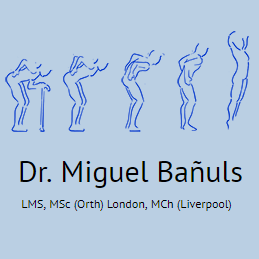Developer well-being is an essential topic in today’s tech landscape, as the pressure of coding can often overshadow the personal aspects of a developer’s life. Recent developer surveys reveal that while many are passionate about coding, their mental health in tech and overall job satisfaction are frequently overlooked. This is particularly pertinent in discussions about workplace diversity, where a supportive environment can lead to better productivity and retention. The coding community is beginning to recognize that developers are not just skilled professionals but complex individuals with diverse needs and interests. By prioritizing developer well-being, we can foster a healthier tech industry that values both mental health and creativity alongside technical prowess.
The concept of supporting the mental health and overall wellness of programmers is gaining traction in the tech community, as more professionals acknowledge the importance of holistic approaches to career satisfaction. Alternative terms like “developer mental health” and “coder wellness” encapsulate the push for improved working conditions and inclusive environments. As the coding community strives for workplace diversity, understanding the diverse experiences of developers is crucial. Furthermore, insights from recent research highlight the necessity of blending work-life balance with professional development to create a thriving atmosphere. Emphasizing the need for these vital shifts can help cultivate a more supportive tech industry where every developer can flourish.
The Intrigue of Coding vs. Personal Connections
In the ever-evolving world of technology, the narrative often centers around coding and programming languages, but occasionally it feels as though those discussions overshadow the more enriching aspects of our lives. For many developers, the thrill of connecting with others can stem from shared hobbies and passions outside of the coding framework. For instance, my recent encounter at a tech conference truly sparked my excitement, not because of shared coding practices with the person I met, but rather due to our mutual love for bouldering. It’s a reminder that the human element often takes precedence over technical skills in building genuine relationships.
Moreover, the entertainment industry seems to share a similar sentiment, exemplified by the success of films like ‘The Social Network’, which won accolades for depicting the drama behind the scenes, rather than the technical intricacies involved in creating social platforms. This brings to light the question of whether we, as a community, are focusing too much on the technical aspects and ignoring our shared experiences and personal stories.
Introducing the State of Devs Survey
Recognizing the importance of broadening our understanding of developers’ lives beyond just the code they write, I am excited to launch the ‘State of Devs’ survey. This new initiative aims to gather data not just about coding practices, but also about aspects that define our identities as developers. By embracing topics like favorite movies, hobbies, sleep patterns, and overall career satisfaction, the survey seeks to reveal the multifaceted lives of those in the tech community.
The goal is to dive deep into what makes developers unique individuals, exploring both light-hearted interests and more serious issues such as workplace culture and discrimination. By asking pointed questions aimed at eliciting candid responses, we hope to uncover valuable insights that can inform how we shape our industry to become more inclusive and empathetic.

Connecting with Diverse Audiences
One of the most compelling reasons to diversify the topics of inquiry in this survey is to reach out to underrepresented groups within the developer community. Traditionally, marginalized voices have struggled to find a platform in tech spaces, often feeling excluded from conversations that primarily focus on coding and technical prowess. By tailoring questions that address their experiences and challenges, we aim to bridge this gap and foster a more inclusive dialogue.
Previous surveys had limited success in attracting diverse participant backgrounds despite our outreach efforts. This time, the inclusion of relevant questions about discrimination, experiences within different workplace cultures, and the subsequent actions taken can help illuminate the unique challenges faced by various groups. Understanding these experiences is not just about representation; it’s about identifying and mitigating issues that could have a broader impact on the entire community.
The Role of Vulnerable Groups in Tech
In striving for an inclusive landscape, it’s crucial to recognize the invaluable role that vulnerable groups play within the tech community. Often, these individuals encounter issues or oppressive policies before the wider community feels their effects, acting as early warning signals for potential challenges. This is particularly salient in an era where discussions surrounding diversity, equity, and inclusion seem to fluctuate in priority.
Addressing the challenges faced by these groups is not only about rectifying injustices; it serves as a proactive measure to protect the integrity and futures of all developers. Ignoring their struggles could lead to a ripple effect that diminishes the overall health of the industry. Hence, my aim is to ensure that these conversations remain at the forefront of our collective consciousness, especially as we navigate through changing societal norms and attitudes.
Exploring Broader Societal Concerns
Beyond the realms of coding, the survey seeks to tap into the broader societal concerns that keep many of us up at night. In recent years, the conversation around the separation of politics from workplace dynamics has gained traction, with some arguing for a return to a more neutral and focused environment. However, with rising tensions and injustices bubbling under the surface, this separation may no longer be a feasible reality.
As developers become increasingly influential in various political spheres, it’s essential to ask ourselves how we engage with these dynamics in our professional lives. While this initial survey may not fully explore the intersection of ideology and tech, it sets the groundwork for future inquiries into how our personal beliefs shape our experiences and influence the tech landscape.
Navigating Sensitive Topics
As I embark on this survey journey, I find myself reflecting on the balance between addressing sensitive topics and fostering open dialogue. Should we, as a community, shy away from exploring the weighty issues that might polarize our audience? Given the impact that these conversations can have on our industry, it seems both prudent and necessary to engage with them constructively.
There is potential for our collective understanding to grow when we are open to discussing the realities of our environment, including the personal nuances that affect our work life. Your feedback on these sensitive topics will be invaluable as I aim to navigate the path toward fostering a more inclusive tech culture.















